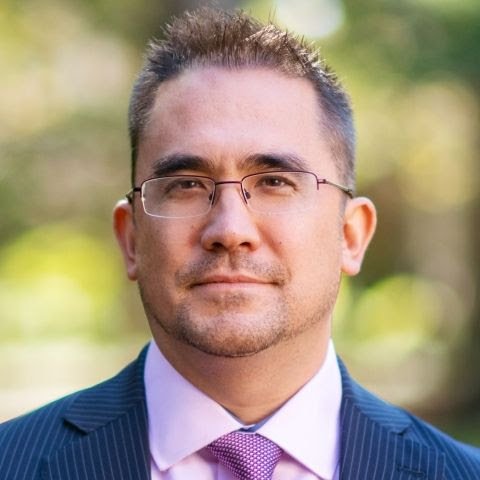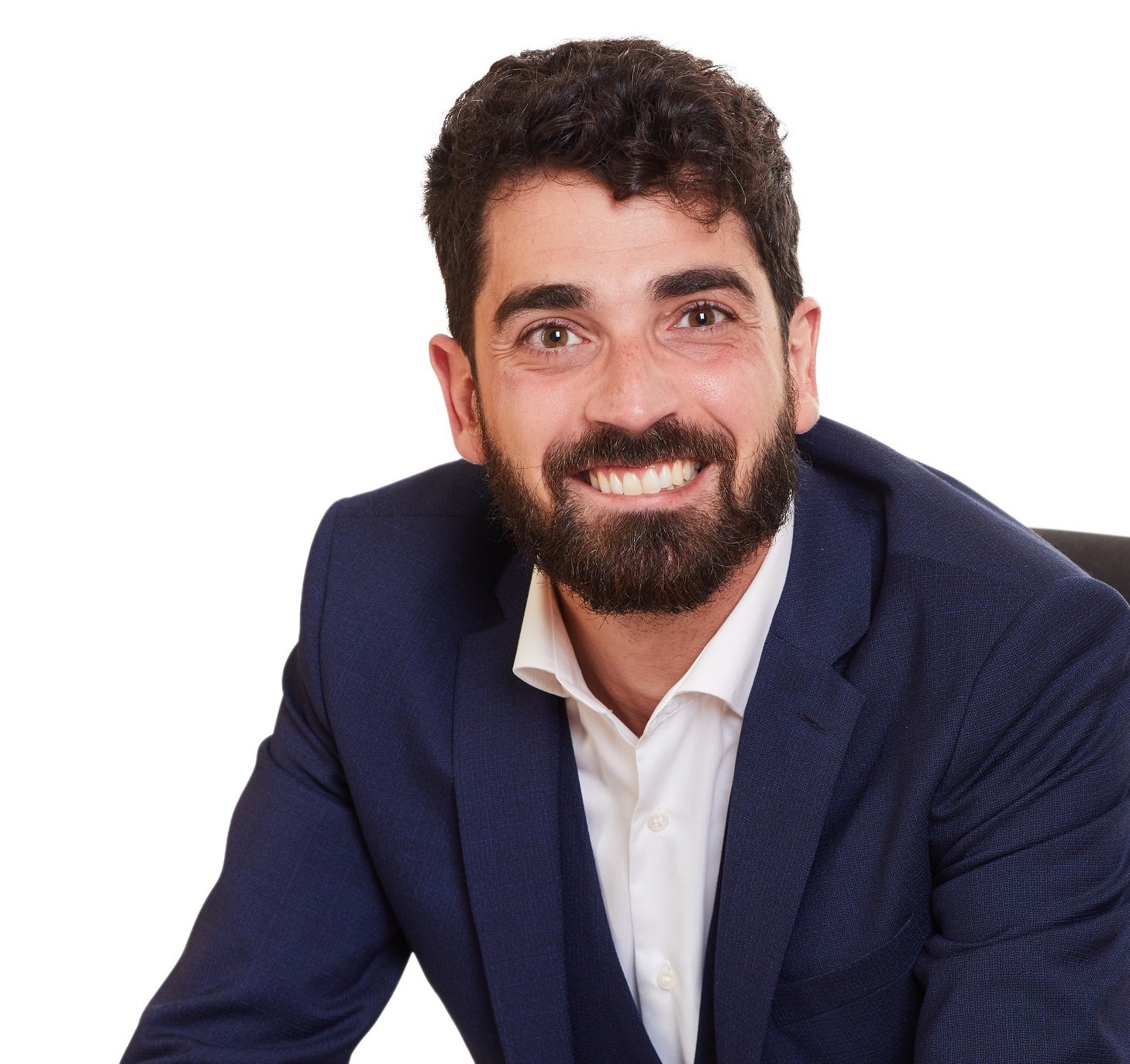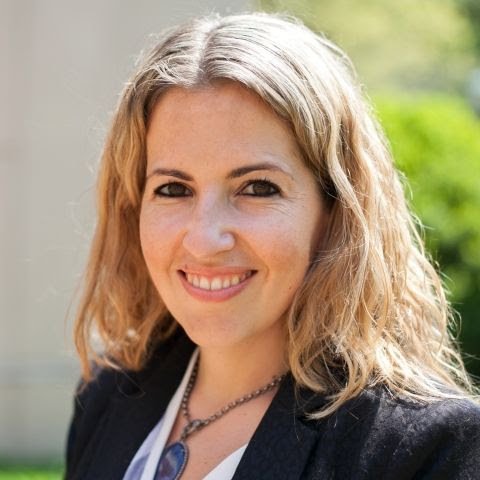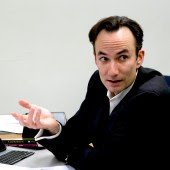
Andrew Hayashi - The Small and Diversifying Network of Legal Scholars: a Study of Co-authorship from 1980-2020
My plan is to discuss my paper “THE SMALL AND DIVERSIFYING NETWORK OF LEGAL SCHOLARS: A STUDY OF CO-AUTHORSHIP FROM 1980–2020.” I will explain some of the basic tools of network analysis and discuss how I used them to explore how the network of legal scholars and patterns of coauthorship between them evolved from 1980–2020. I document dramatic growth in the network of legal scholars and a much greater increase in co-authorship. I find that although legal scholars tend to coauthor with other scholars of the same gender and minority status, this tendency has declined over time. There is also evidence legal scholars are increasingly finding coauthors outside their own institutions. Finally, I examine the ordering of authors’ names on coauthored papers.
About the speaker:
Andrew Hayashi is an expert in tax law, tax policy and behavioral law and economics. He joined the University of Virginia School of Law's faculty in July 2013. Hayashi is a McDonald Distinguished Fellow at the Center for the Study of Law and Religion at Emory University.
Prior to joining the Law School, he was the Nourallah Elghanayan Research Fellow at the Furman Center for Real Estate and Urban Policy at New York University, where his research focused on the effects of tax policy on real estate and housing markets. Before joining the Furman Center, he practiced tax law as an associate at Davis Polk & Wardwell.
Hayashi received a bachelor of science in foreign service degree, magna cum laude, in philosophy and international economics from Georgetown University in 2002. The following year, he received a master's degree in economics and philosophy from the London School of Economics. He received a law degree, Order of the Coif, and a doctorate in economics from the University of California, Berkeley, in 2008. At Berkeley, he was a Jack Kent Cooke Foundation Graduate Scholar, a Berkeley Law and Economics Fellow, and received research funding from the Russell Sage Foundation and the Pell Institute for the Study of Opportunity in Higher Education.

Fabrizio Esposito - The Consumer Welfare Hypothesis as Legal Science: Searching for Economic Concepts that Fit With Legal Discourse
What is efficiency about? Total welfare, we all know it. Except, that it needs not. For Adam Smith, Kaldor and Hicks of (Kaldor-Hick efficiency), and Ronald Coase, a concern for the benefits consumers lose due to imperfect competition is constitutive of the defense of markets as a social institution. Frank Knight, founding father of the Chicago School of Economics (no less), thought of the monopolist as a thief. Hence, efficiency can be about consumer welfare and consumer sovereignty (not in the narrow sense currently being criticized, especially by law and political economy scholars).
Where does the law stand? Following Calabresi, the question is: which notion of efficiency fits best with the law? In The Consumer Welfare Hypothesis, I develop a method to answer this question and apply it to EU antitrust and consumer law.
The method is called reverse-engineering legal reasoning. It improves on Posner’s original and pathbreaking efficiency hypothesis of the common law and does what line of research did not, namely producing knowledge about the content of the law.
The talk will focus on illustrating the method, its application, and possible extensions.
About the speaker:
Fabrizio Esposito is Assistant Professor of Private Law at the NOVA School of Law in Lisbon and holds a Ph.D. from the European University Instutite. His research focuses on exchange contracts, that he argues are best understood in terms of consumer welfare maximization and consumer sovereignty, so that the legal system complements and substitutes the invisible hand in putting ‘consumers’ in the driver’s seat of the economy. This perspective is developed in particular in his book The Consumer Welfare Hypothesis in Law and Economics (Edward Elgar 2022; summary here) and a follow-up paper. (Note: in his framework, labour is not an exchange but a co-production contract.)
Fabrizio’s scholarship is in the Calabresian tradition of Law and Economics (as argued here). Notably, he has developed a method to check the fitness of economic concepts with legal reasoning (discussed also here) that he applied extensively to prove the consumer welfare hypothesis in the context of EU law.
Fabrizio has published extensively on the methodology of law and economics, with a focus on consumer law. He has co-edited Research Methods in Consumer Law (Edward Elgar 2018), Economics in Legal Reasoning (Palgrave 2022) and the Cambridge Handbook on Algorithmic Price Personalization and the Law (forthcoming).

Mila Versteeg - How Constitutional Rights Matter
Does constitutionalizing rights improve respect for those rights in practice? Drawing on statistical analyses, survey experiments, and case studies from around the world, Mila Versteeg, Henry L. and Grace Doherty Charitable Foundation Professor of Law at the University of Virginia School of Law, argues that enforcing constitutional rights is not easy, but that some rights are harder to repress than others. First, enshrining rights in constitutions does not automatically ensure that those rights will be respected. For rights to matter, rights violations need to be politically costly. But this is difficult to accomplish for unconnected groups of citizens. Second, some rights are easier to enforce than others, especially those with natural constituencies that can mobilize for their enforcement. This is the case for rights that are practiced by and within organizations, such as the rights to religious freedom, to unionize, and to form political parties. Because religious groups, trade unions and parties are highly organized, they are well-equipped to use the constitution to resist rights violations. As a result, these rights are systematically associated with better practices. By contrast, rights that are practiced on an individual basis, such as free speech or the prohibition of torture, often lack natural constituencies to enforce them, which makes it easier for governments to violate these rights. Third, even highly organized groups armed with the constitution may not be able to stop governments dedicated to rights-repression. When constitutional rights are enforced by dedicated organizations, they are thus best understood as speed bumps that slow down attempts at repression.
About the speaker:
Mila Versteeg joined the Law School in 2011. Her research and teaching interests include comparative constitutional law, public international law and empirical legal studies. She has published over 70 articles and book chapters, in both legal and social science journals. Her publications have, amongst others, appeared in the Harvard Law Review, the Columbia Law Review, the New York University Law Review, the University of Chicago Law Review, the American Political Science Review, the American Journal of Political Science, the Journal of Legal Studies, the Journal of Law and Economics, the American Journal of International Law, and the Journal of Law, Economics and Organizations. A number of her works have been translated into Spanish, Chinese, Portuguese and Turkish. Her new book How Constitutional Rights Matter won the Best Book Prize for 2019 and 2020 from the International Society of Public Law and the Best Book Award from the Human Rights Section of the American Political Science Association.
In 2017, Versteeg was named an Andrew Carnegie Fellow, which provided her with a $200,000 award to expand her research into the world's constitutions to better understand how constitutional rights are enforced in different countries. Versteeg has been a visiting professor at the University of Chicago Law School, Columbia Law School, the Hebrew University, the University of Hamburg, Tel Aviv University and IDC Herzliya.

Martín Frúgoli - Cognitive Biases in E-commerce Via the Platforms
There is no discussion about the great impact behavioral law and economics has had on legal theory and policymaking the past two decades. In fact, in recent years the behavioral movement has become one of the most influential developments, at least, in legal and economic scholarships in general.
Although nowadays cognitive biases are far away from being a scientific novelty, we still need to know much more about how the platforms use and abuse from many of them.
I will also analyze the impact in the process of judgement and decision-making.
Real examples in e-commerce via the platforms will be shown.
Briefly, how the platforms exploit the human cognitive biases is a curios field to learn from and to discuss for possible solutions. I will share possible solutions and the appropriate way of using them for the society’s good.
About the speaker:
Martín A. Frúgoli is the co-founder and managing partner of his own law firm “Frúgoli, Ramonda & Asoc.”. He practices Private Law. He had succeeded in more than 500 cases (and won more than 98% of the judicial ones, since 2009).
He is a part time Law Professor at the Universidad Nacional de Rosario. He teaches Tort Law, Commercial and Civil Obligations, and he is the Co-Director of the Consumer Law Clinic at the Universidad Nacional de Rosario.Professor Frúgoli has been invited to international and national conferences as a speaker in multiple academic congresses and courses. He is a specialist in Tort Law. He is also a Mediator and a Ph.D candidate at the Universidad Nacional de Rosario. In addition, he published almost 50 academic articles in Economic Analysis of Law and Tort Law, Professor Frúgoli also collaborated on 4 books.
He is the President of the Behavioral Sciences Institute at the Rosario Bar Association. Frúgoli is a permanent member of the Intituto de Análisis Económico del Derecho de la Universidad de Palermo, and a member of the American Bar Association.
He has done post graduate studies at the Univeristy of Chicago and Harvard University.
Li Zhang - TBA
More information coming soon! Check back frequently for updates.
About the speaker:
Li Zhang oversees the Legal Data Lab, where he supports and promotes empirical legal research. A computational social scientist by training, Zhang provides research support in various areas such as data cleaning, modeling, natural language processing, social network analysis, cloud computing, web scraping, experimental design and data visualization. His research interests include political communication, judicial behavior and social psychology. Some of his past projects were funded by Andrew W. Mellon Foundation, Feld Family Foundation and Rapoport Family Foundation.
Before joining UVA Law, Zhang was the social sciences and data librarian at Skidmore College. He was also affiliated with the Hariri Institute for Computing and Computational Science & Engineering at Boston University. He is completing his Ph.D. at Boston University on social bot detection and regulation.

Adam Sitze- Mechanical Jurisprudence Today: Three Theses
Précis: Roscoe Pound’s 1908 essay “Mechanical Jurisprudence” is a classic of American legal theory. Often interpreted in terms of the opposition between conservative, nineteenth-century formalism and early twentieth-century progressive sociological jurisprudence, Pound’s essay in fact contains a surprising set of teachings about the relations between science, law, and life. In this talk, I shall review these teachings and consider their relevance to jurisprudence today.
About the speaker:
Adam Sitze is the John E. Kirkpatrick 1951 Professor in Law, Jurisprudence and Social Thought at Amherst College. He teaches courses on law and literature, legal and critical theory, and South African legal history. He has published in journals such as The Yale Journal of Law and the Humanities, The London Review of International Law, Law and Critique, and Law, Culture and the Humanities. He is author of The Impossible Machine: A Genealogy of South Africa’s Truth and Reconciliation Commission (University of Michigan Press, 2013). He is editor of two books by the Italian political theorist Carlo Galli: Political Spaces and Global War (University of Minnesota Press, 2010) and Janus’s Gaze: Essays on Carl Schmitt (Duke University Press, 2015). He is co-editor of Biopolitics: A Reader (Duke University Press, 2013) and co-translator of two books by the Italian feminist theorist Adriana Cavarero: Thou Shalt Not Kill (Fordham University Press, 2015) and Inclinations: Critique of Rectitude (Stanford University Press, 2016). He has held fellowships from the Mellon Foundation, the ACLS/SSRC/NEH, and the MacArthur Foundation. In the Spring of 2022, he was a Visiting Fellow at the Institute for Human Sciences in Vienna.

Ralf Michaels - Decolonial Comparative Law
Our everyday way of life – our online purchases, our international travels, our consumption of coffee and oranges, our zoom communication – all of that is governed by rules of private law and private international law, organized around basic concepts like subjective rights, property, contract, delict, protected and enforced across boundaries through private international law. This our way of life, scientists warn us, has become unsustainable in an existential sense: If we continue living as we do now, humanity is bound for extinction. Sustainability, we now know, requires an equilibrium not only between the economic (profit) and the social (people), but also the environment (planet). In view of planetary boundaries, growth has boundaries, too. This must have implications for private law. What are they? The argument can be summarized as follows. Private law is justified, normally, as not producing negative externalities. But this is due to the fact that some externalities are not counted. Sustainability helps us focus on three underappreciated externalities – the Global South, the Environment, future generations. Including those in our assessment demonstrates the need for a paradigmatic shift in our private law paradigms.
About the speaker:
Ralf Michaels has been a Director at the Institute since 2019.
He is additionally Global Law Professor at the Queen Mary University of London and Professor of Law at the University of Hamburg.
After studying law in Passau and Cambridge, which concluded with his sitting for the first state exam in law in 1994, Ralf Michaels was a senior research assistant under Prof. Klaus Schurig (Chair for Private Law, Private International Law and Comparative Law) at the University of Passau. In 1995 he was awarded a Master of Laws (LL.M.) at Cambridge University (King’s College).
Ralf Michaels first came to the Institute in 1997, where he served as an academic staff member until 1999 under Prof. Jan Kropholler. Conferral of his doctoral degree and completion of the second state exam in law followed in 2000. In 2001 he returned to the Institute as a research fellow before then relocating to Duke University School of Law for the next 17 years: he served until 2007 as Assistant Professor, subsequently as Professor and from 2012 until 2019 as Arthur Larson Professor of Law.
Ralf Michaels was Guest Professor at the Universities of Panthéon/Assas (Paris II), Princeton, Pennsylvania, Toronto, Tel Aviv and the London School of Economics; he was also Senior Fellow at Harvard Law School, Princeton University (Program in Law and Public Affairs) and the American Academy in Berlin. He is a titular member of the Académie internationale de droit comparé and a member of, among other entities, the American Law Institute, the Gesellschaft für Rechtsvergleichung (German Society for Comparative Law), the Deutschen Gesellschaft für Internationales Recht (German Society for International Law) and the Zivilrechtslehrervereinigung (Association of Professors in Private Law).

